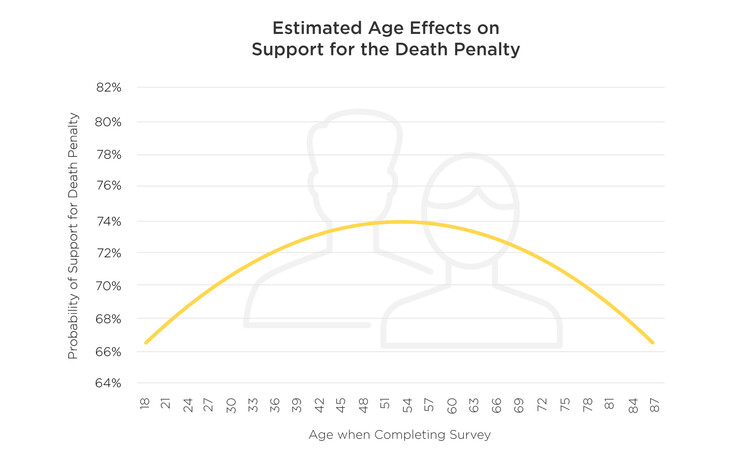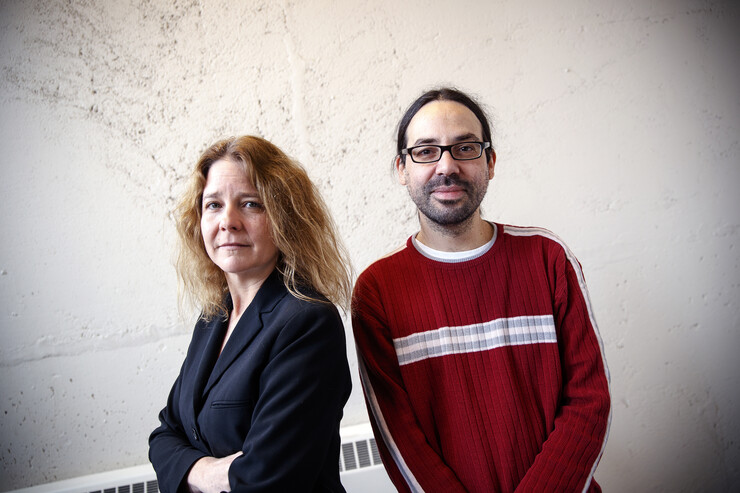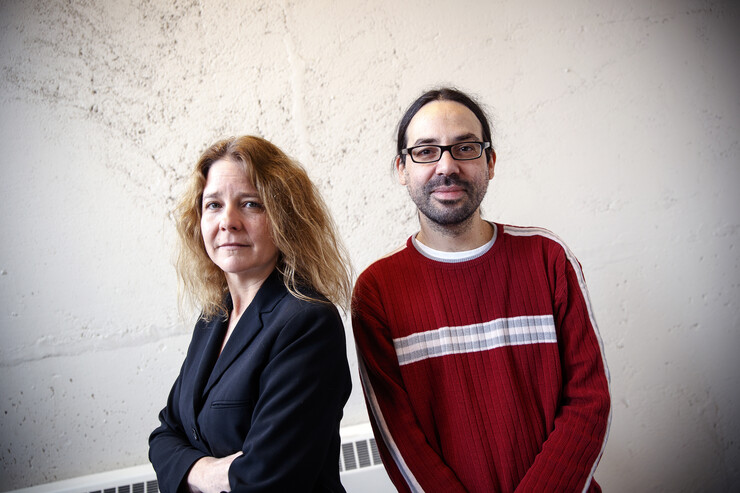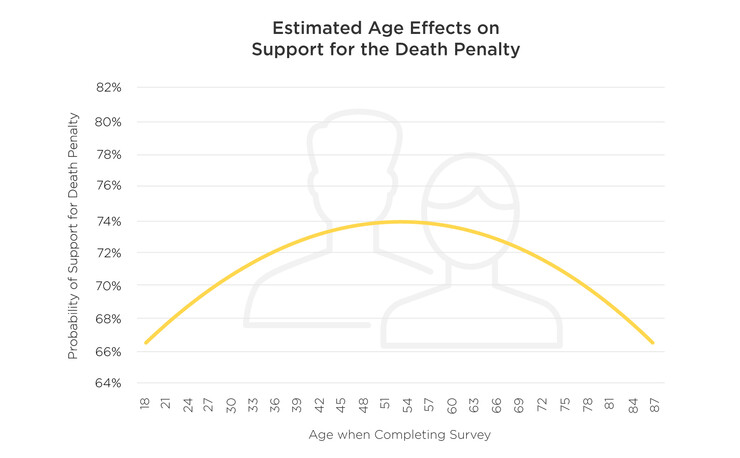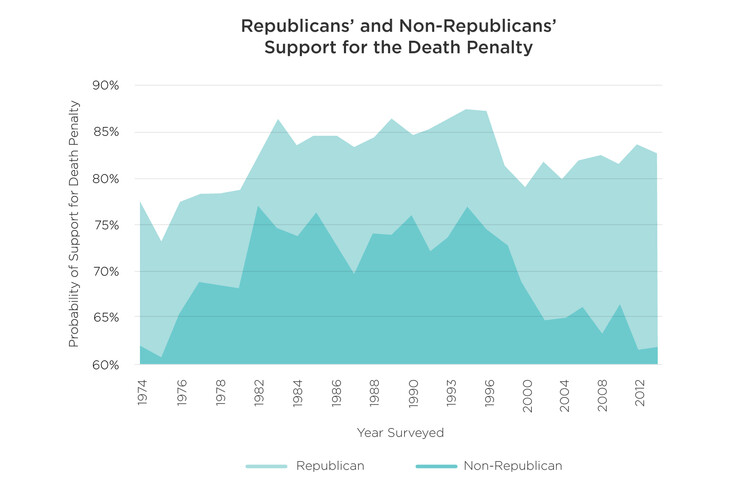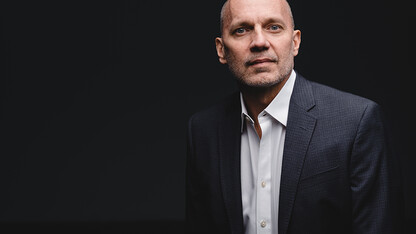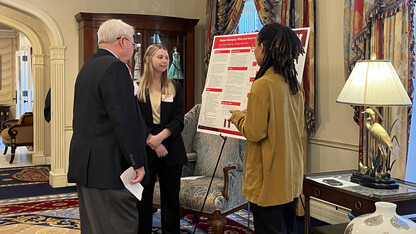· 4 min read
Nebraska research drills into demographic drivers of death-penalty support
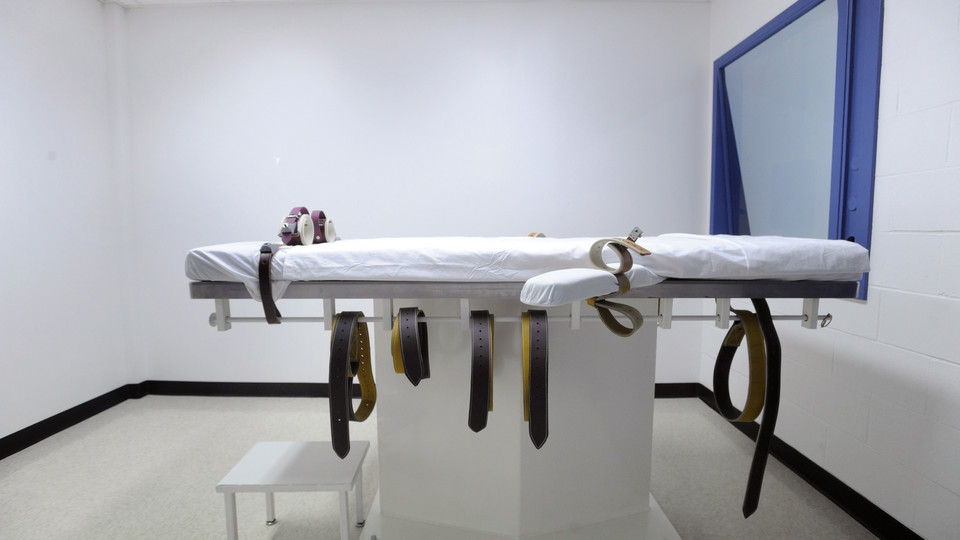
Public opinion polling shows the death penalty has majority support in the United States. Polls also show approval is waning, dropping from a high of 80 percent in 1995 to 56 percent in 2015.
What those polls do not show is why – but researchers used data from four decades of the General Social Survey to unearth the driving demographics of capital punishment’s favorability and opposition.
In a new study, criminologist Amy Anderson and sociologist Philip Schwadel have found a person’s age, race, political ideology and religion are important factors in explaining opinions on the death penalty. They also showed that support for capital punishment ebbs and flows with the violent crime rate.
Most surprising, the authors said, was the effect someone’s age has on their support of the death penalty.
Schwadel, professor of sociology at Nebraska, has previously used the General Social Survey to look at generation and age effects on religiosity, higher education and political tolerance.
Past research showed some generations, especially Baby Boomers, are more liberal than other generations, so Schwadel said he expected to find generational shifts in thinking about the death penalty. Instead, the study revealed that the age of a person completing the survey was a strong predictor.
“We found robust age effects, but not generational effects,” Schwadel said. “Generation doesn’t matter a lot, but age and time period matter a lot.”
Younger people were less likely to support the death penalty, while respondents around middle age were the most likely to support the death penalty. After support peaked around age 50 to 55, likelihood of support for capital punishment began decreasing again.
“There’s a hypothesis that as you get older, you become more conservative,” said Anderson, a professor of criminology at the University of Nebraska at Omaha who teaches and researches at Nebraska. “This suggests that’s true to a certain age, and then it trends back down.”
The co-authors speculated that the upward trend of support through middle age may be driven by having a family to protect, and that as people age and begin facing their own mortality, they may start thinking of death and capital punishment differently.
The researchers also tracked support against the violent crime rate, which is compiled and released by the Federal Bureau of Investigation, and found that the crime rate influences support. During and after the crack epidemic in the 1980s and 1990s, for example, support for the death penalty rose in all groups the study examined.
When examining support among religious groups, Catholics were less likely than non-Catholics to support capital punishment, and when breaking the data down even further, Anderson and Schwadel said Christian fundamentalists are the most supportive.
Other demographics that were predictors of opinion were race and political ideology. Males were much more likely to support the death penalty and whites were most favorable. Republicans consistently favored the death penalty, but while non-Republicans have waned in their support, there has been an uptick of approval over the last decade among conservatives, the study showed.
